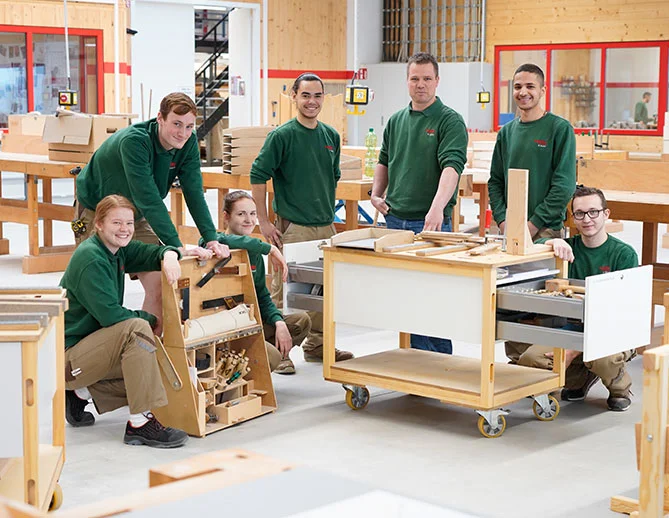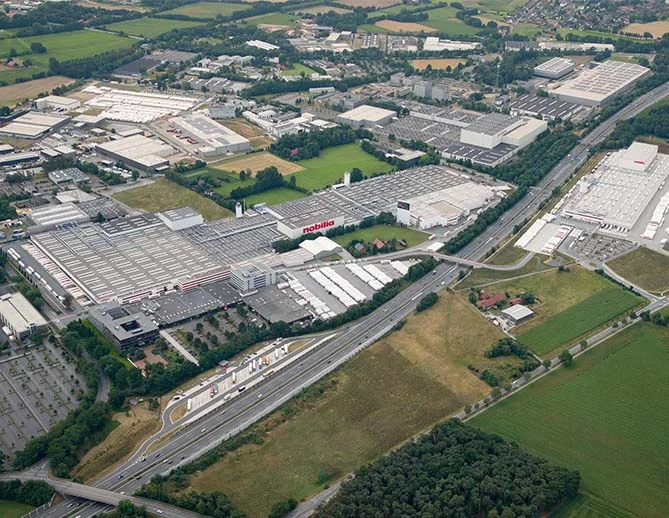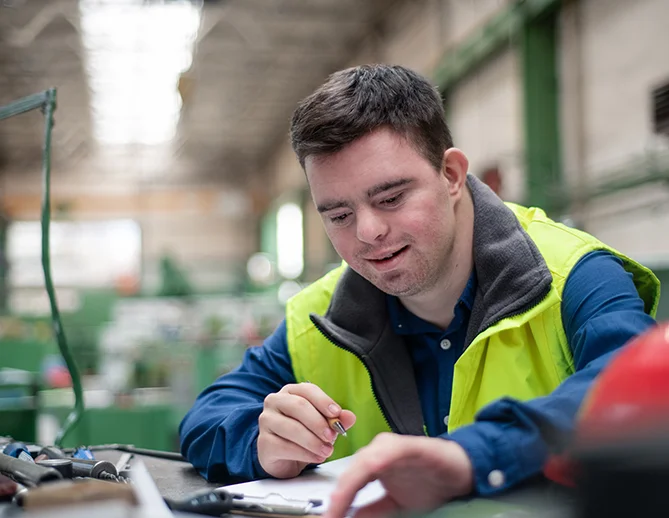
Professional training
What does professional training have to do with sustainability? It’s simple: only when people understand the increasingly complex processes in furniture production can they take targeted action and minimise faults and waste. Skilled workers are therefore not just a requirement for effective business – but also provide the impetus for a sustainable economy. The most promising way for a company to retain skilled professionals in the long term is to train them itself, and we’ve been doing this for some time at nobilia. Indeed, a large proportion of these trainees are nobilia’s skilled workers of tomorrow.
Building standards
Buildings built to the KfW 55 standard have to meet defined energy-efficiency requirements. This standard considers the average energy needed for heating, ventilation and hot water preparation over the course of a year and how much energy is lost from a heated property to the outside. Our new administration buildings in Verl and Saarlouis have been built to the KfW 55 energy efficiency standard. Accordingly, they only consume 55% of the energy of a reference structure.


Integration and appreciation
Sustainability also has a social component. Sustainable action means taking social responsibility as well. One important measure is close cooperation with sheltered workshops. These enhance inclusive access to the labour market for people with disabilities, who can then feel valued for what they do. Our colleagues in the sheltered workshops generally take on simple, but still important tasks. One example is packaging small parts into fittings bags, as these many small items are essential to assembling the perfect kitchen.








